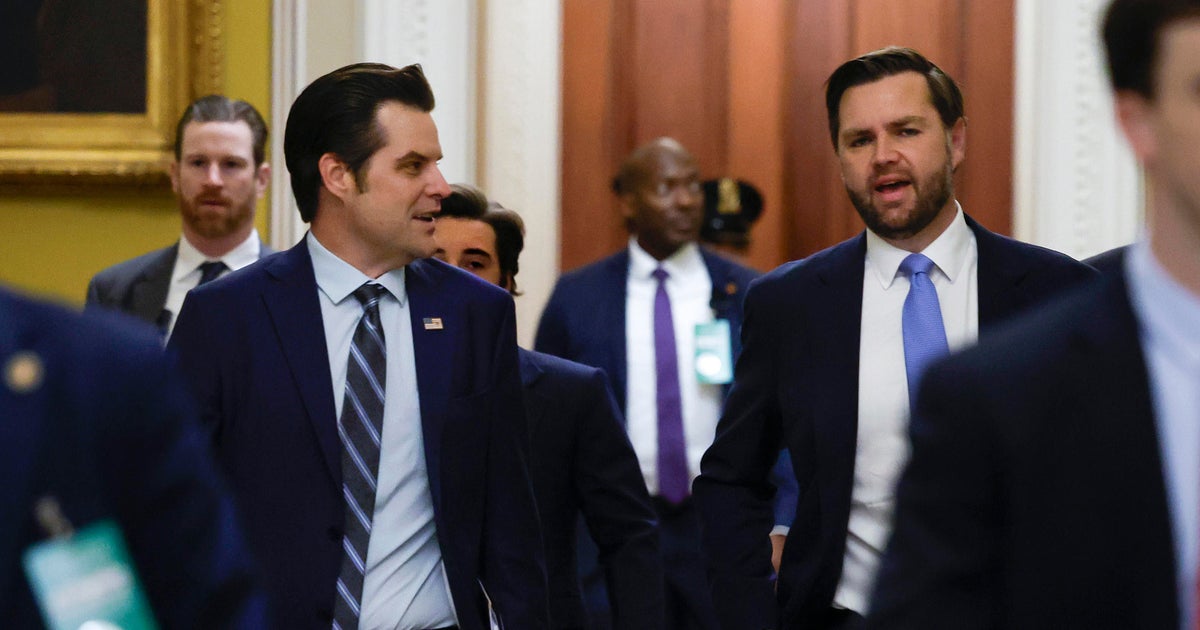Trump faces opposition from GOP senators on Mexico tariff plan
President Trump faces considerable opposition within his party to his plan to punish Mexico with a series of escalating tariffs set to begin as soon as next week. In the Senate, at least, it's possible his party could try to block him from moving forward with his plan, which economists warn would amount to a steep tax on a range of goods imported from Mexico.
The mechanism for the tariffs could be the national emergency declaration the president used in March to redirect Defense Department funds allocated by Congress for the purpose of building part of the southern border wall. Mr. Trump would likely have to amend the original declaration or come up with a new one, Republican Sen. Rob Portman of Ohio said Tuesday. Portman and other GOP senators discussed the Mexico tariffs over lunch with the White House counsel and Justice Department officials.
In either case, Congress would vote on the resulting measure, with both the House and the Senate voting to approve or disapprove the tariffs. If they vote to disapprove them, Mr. Trump would likely issue a veto. It takes two-thirds of the lawmakers in the Senate and the House to override a presidential veto, and there could be enough Senate Republicans opposed to the tariffs to successfully do so.
Portman indicated this could be a more difficult vote for Republicans to make, compared to the earlier vote on wall funding, which merely shifted funds that had already been appropriated from one account to another. A vote that would approve the Mexico tariffs, however, would be like "increasing taxes," Portman said.
Senate Majority Leader Mitch McConnell likewise expressed skepticism of the plan, indicating his hope that the dispute over how to address illegal immigration could be resolved without resorting to tariffs.
"We are not fans of tariffs," McConnell said. "We are still hoping that this could be avoided."
Mexico is the largest trading partner for the U.S., and tariffs would likely raise prices on a large number of items ranging from automobiles to avocados. It's a move that many Republican lawmakers and business leaders oppose.
Beyond that, senators like Portman fear a trade fight between the U.S. and Mexico could scuttle the new U.S.-Mexico trade agreement that the Trump administration would like to see ratified by Congress.
"What would the impact be on the U.S.-Mexico agreement we're just about to finalize? We're hoping to have a vote on that yet this summer," Portman told reporters Tuesday. He also expressed concerned the tariffs could "derail" the plan's prospects in Mexico.
Other Republican senators, like Marco Rubio, of Florida, defended the president's prerogative to impose the levies, saying in a tweet that the law provides Mr. Trump with "broad authority to control transactions with other nations if there is an unusual & extraordinary threat to the national security &/or economy of the U.S.. Unlawful migration & drug flow transiting through #Mexico into U.S. clearly poses such a threat."
Senators were hopeful that talks with Mexico this week would yield a tariff-free solution. Senate Minority Leader Chuck Schumer thinks the Mexican tariffs "just popped into [the president's] head," and "it's clear that lots of people in the administration did not agree."
The Democratic leader believes that faced with opposition by business and his own party, "I believe he will back off."
In the House, it's not clear that there's the majority needed to override a veto. House Republicans may not like the tariffs, but many are not inclined to cross the president.
"I noticed the conversations with the leaders in Mexico as well have been very productive. I'm very hopeful that's why there are no tariffs right now," House Minority Leader Kevin McCarthy told reporters Tuesday. "I think the best outcome of this is to have Mexico assist us in the manner of what's happening on the southern border ... I think if they are able to help us along this border there will be no tariffs."




